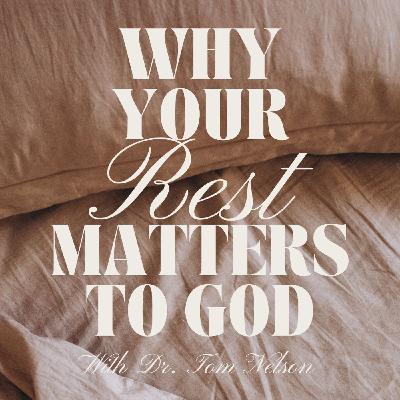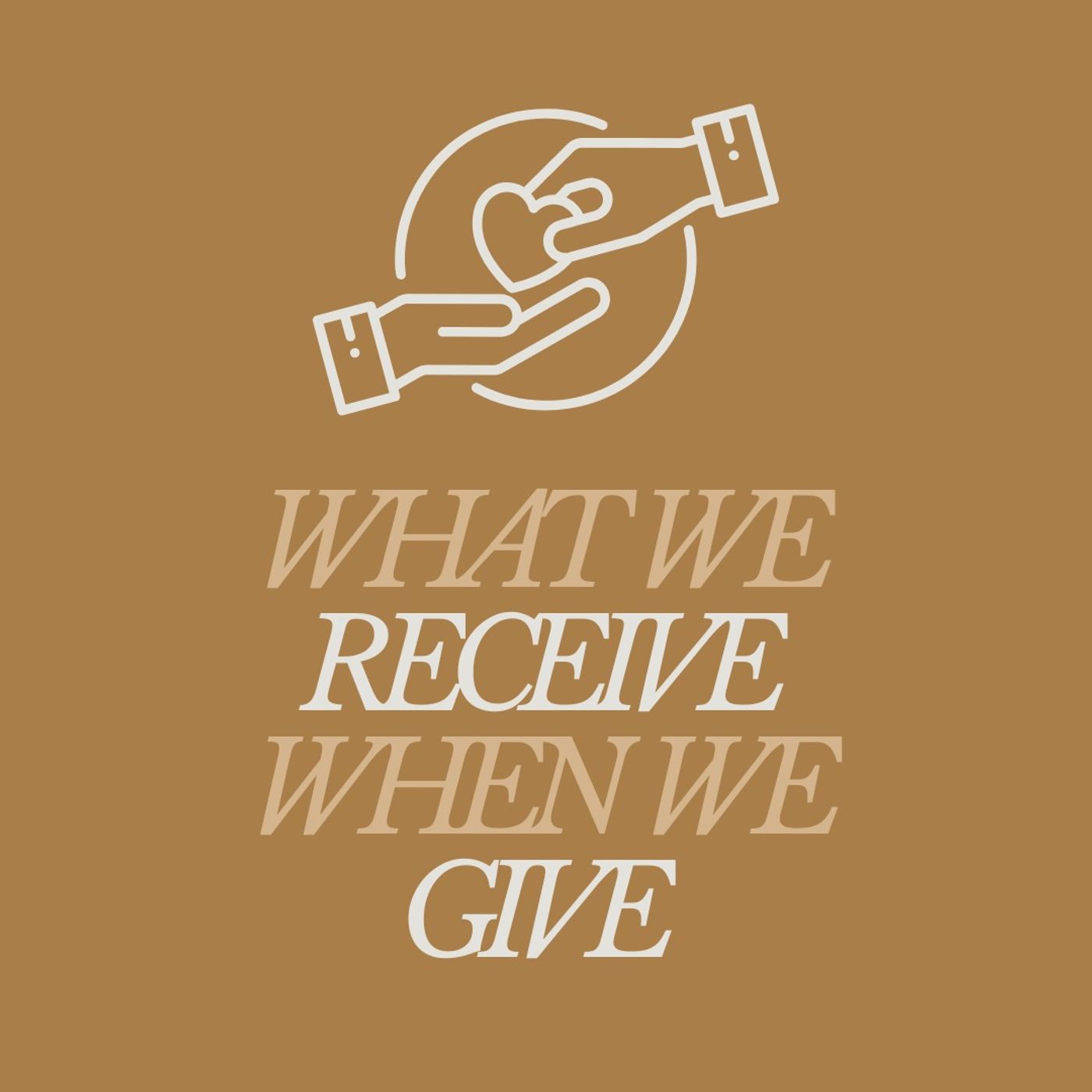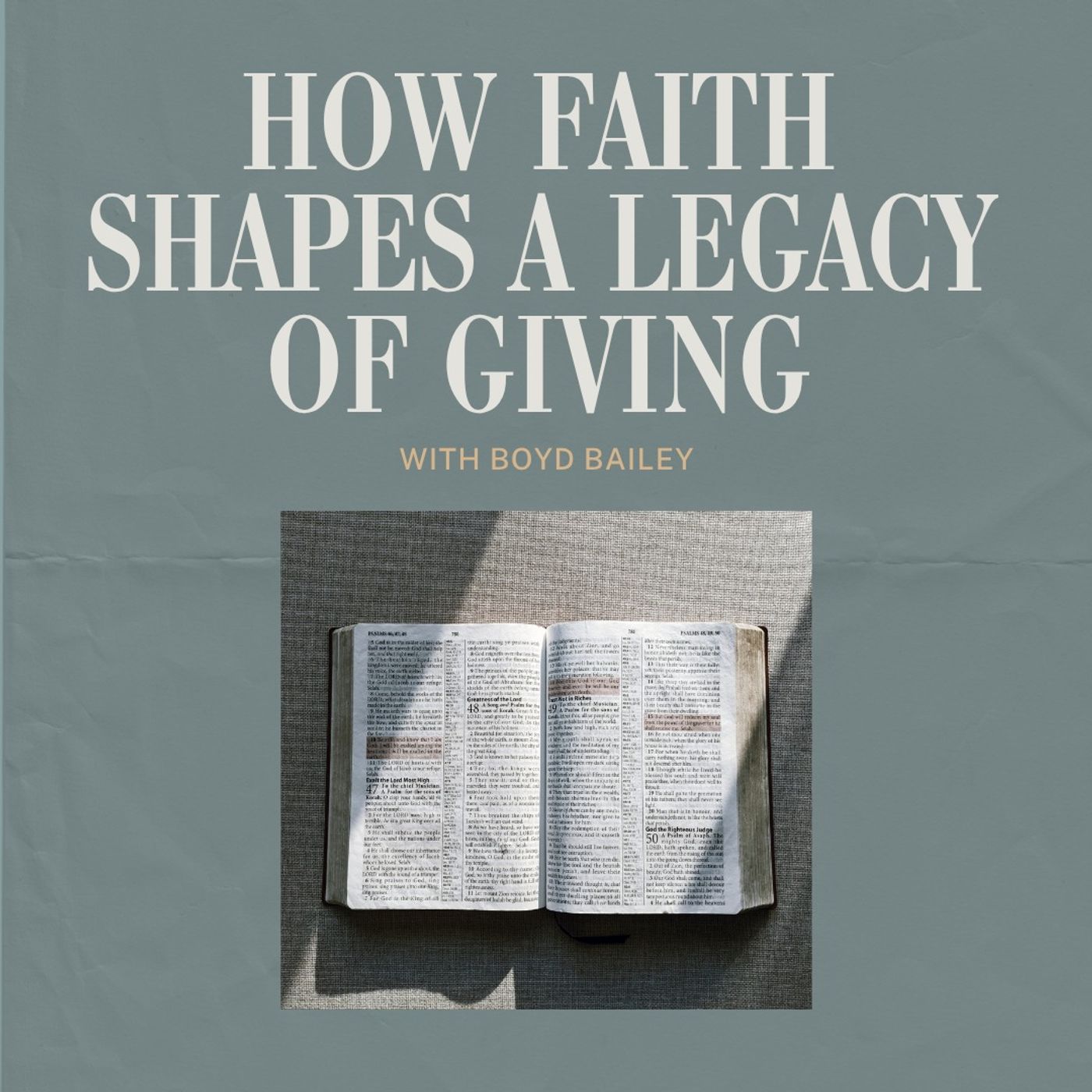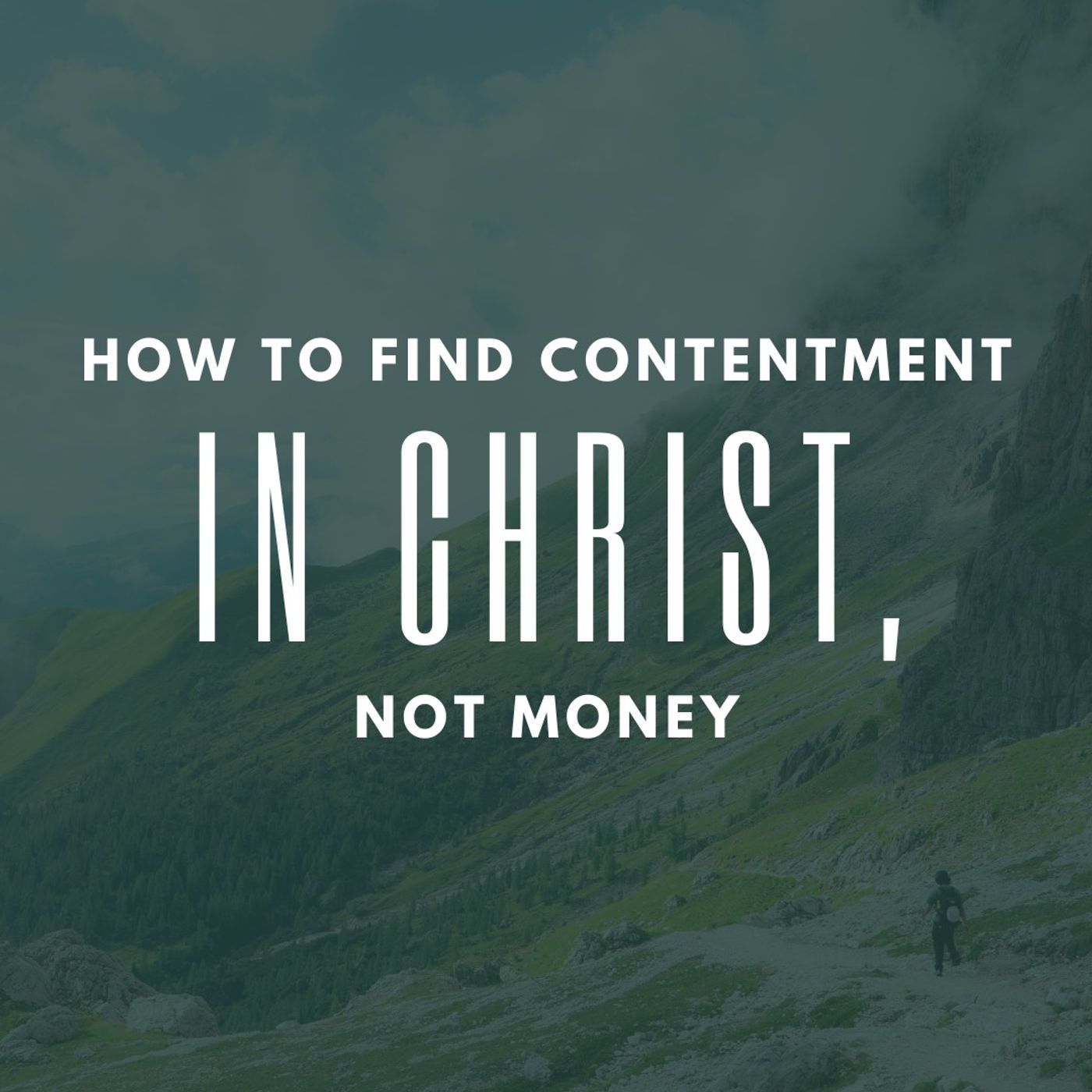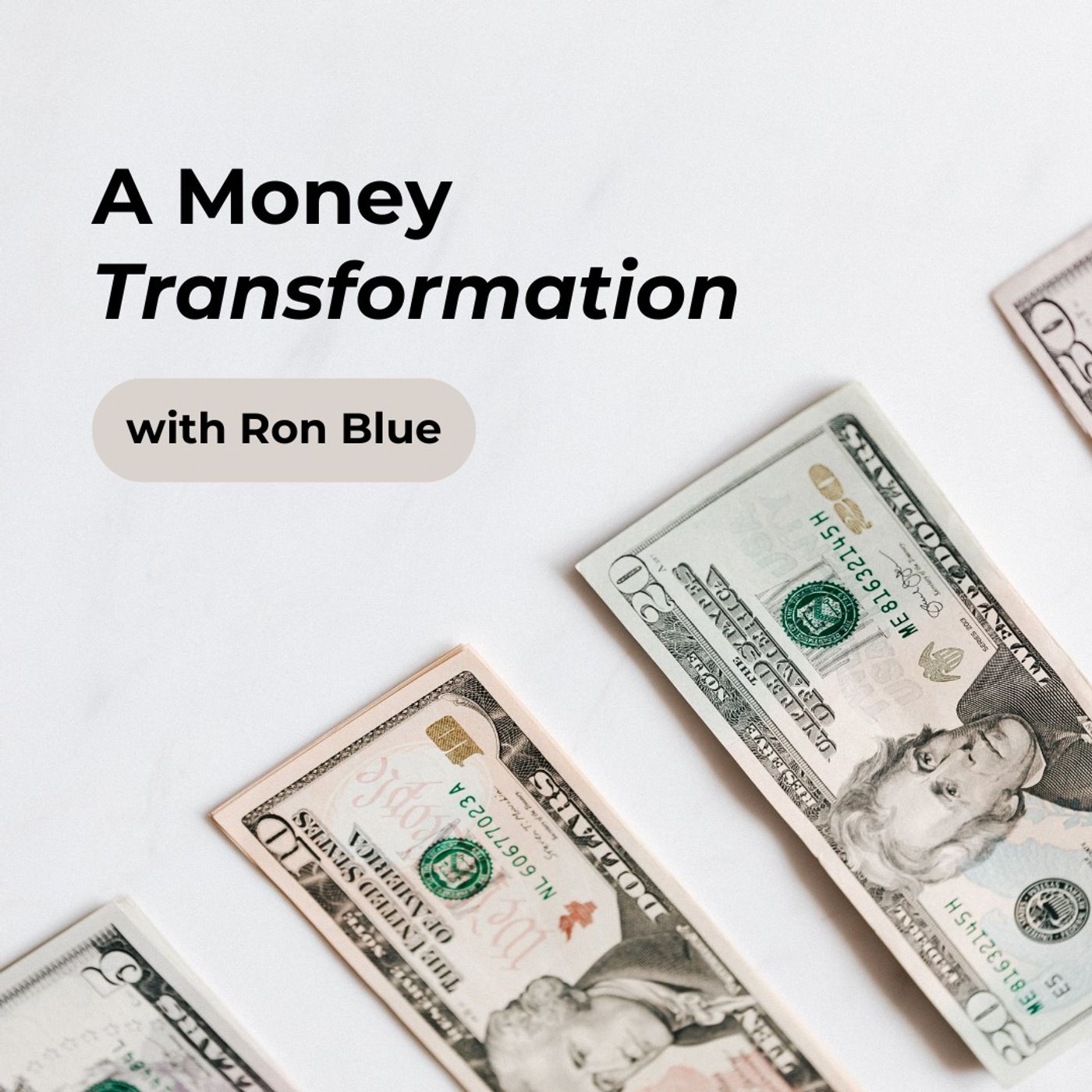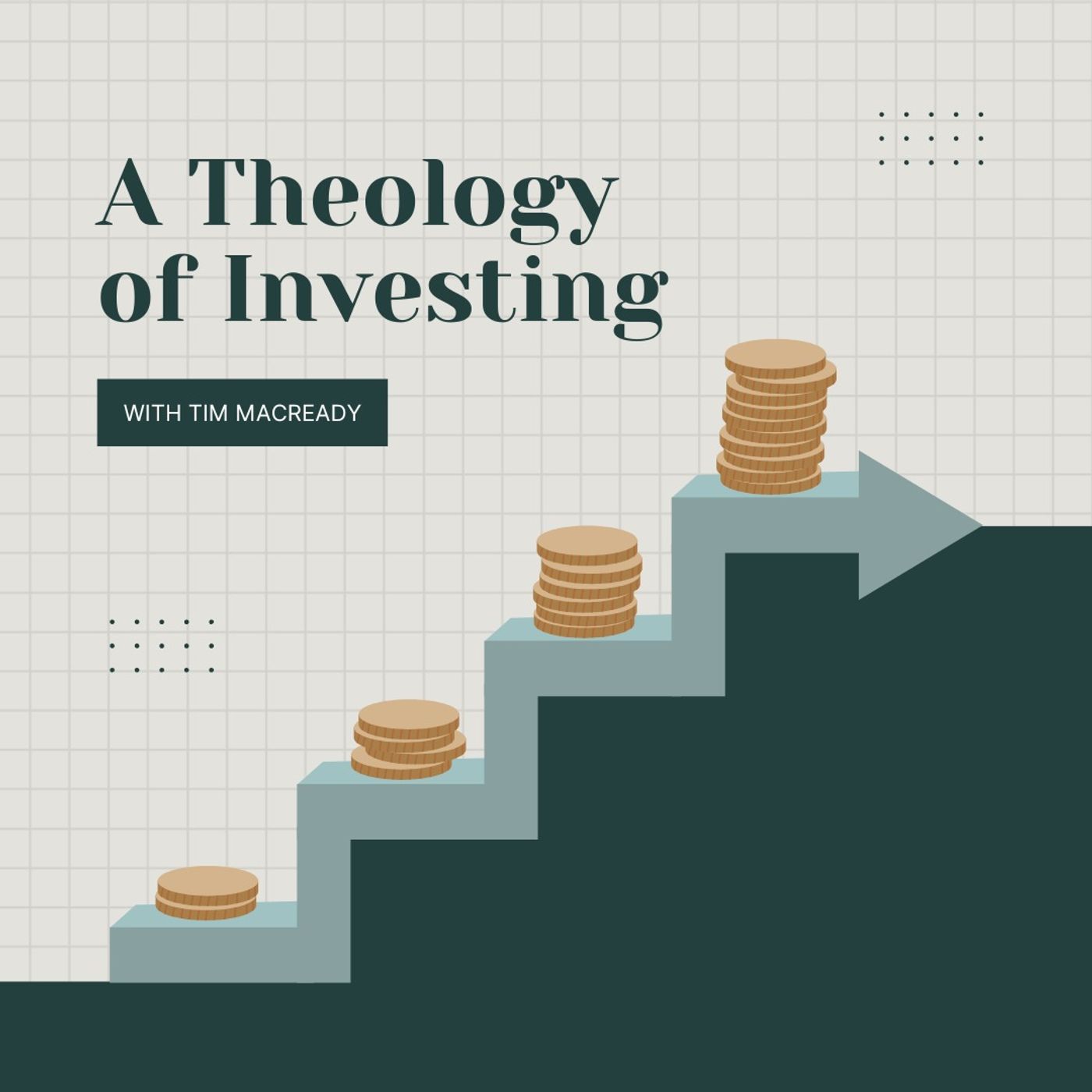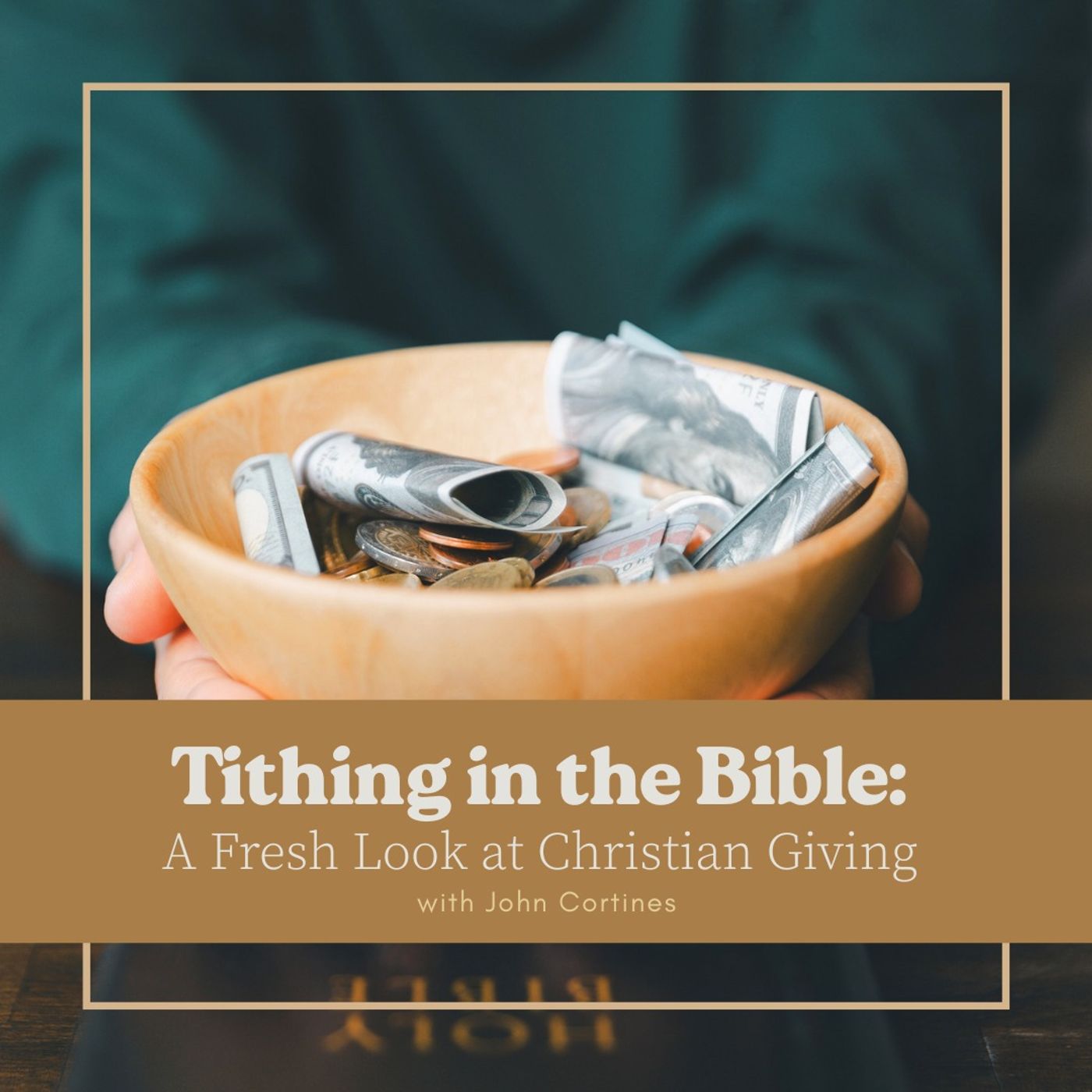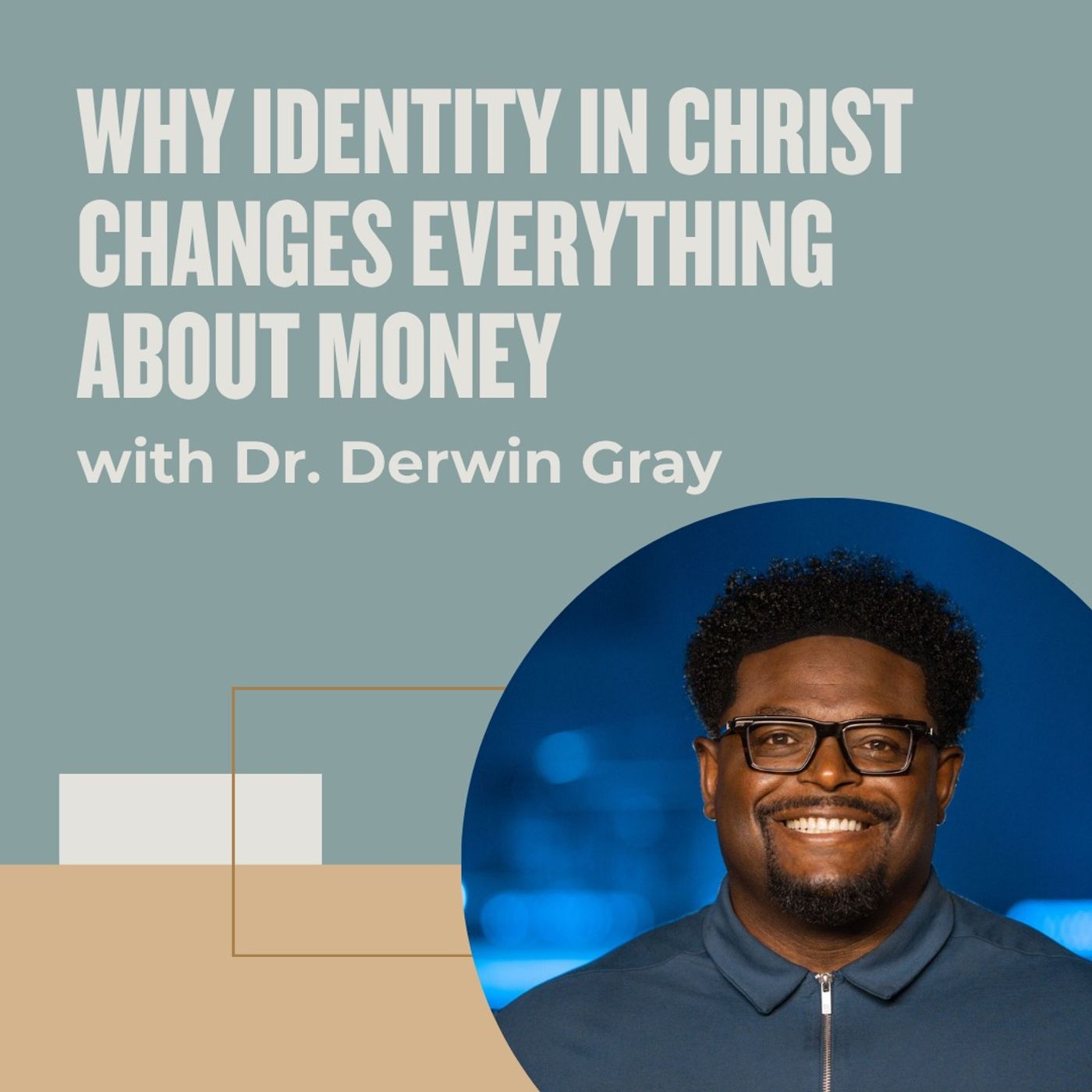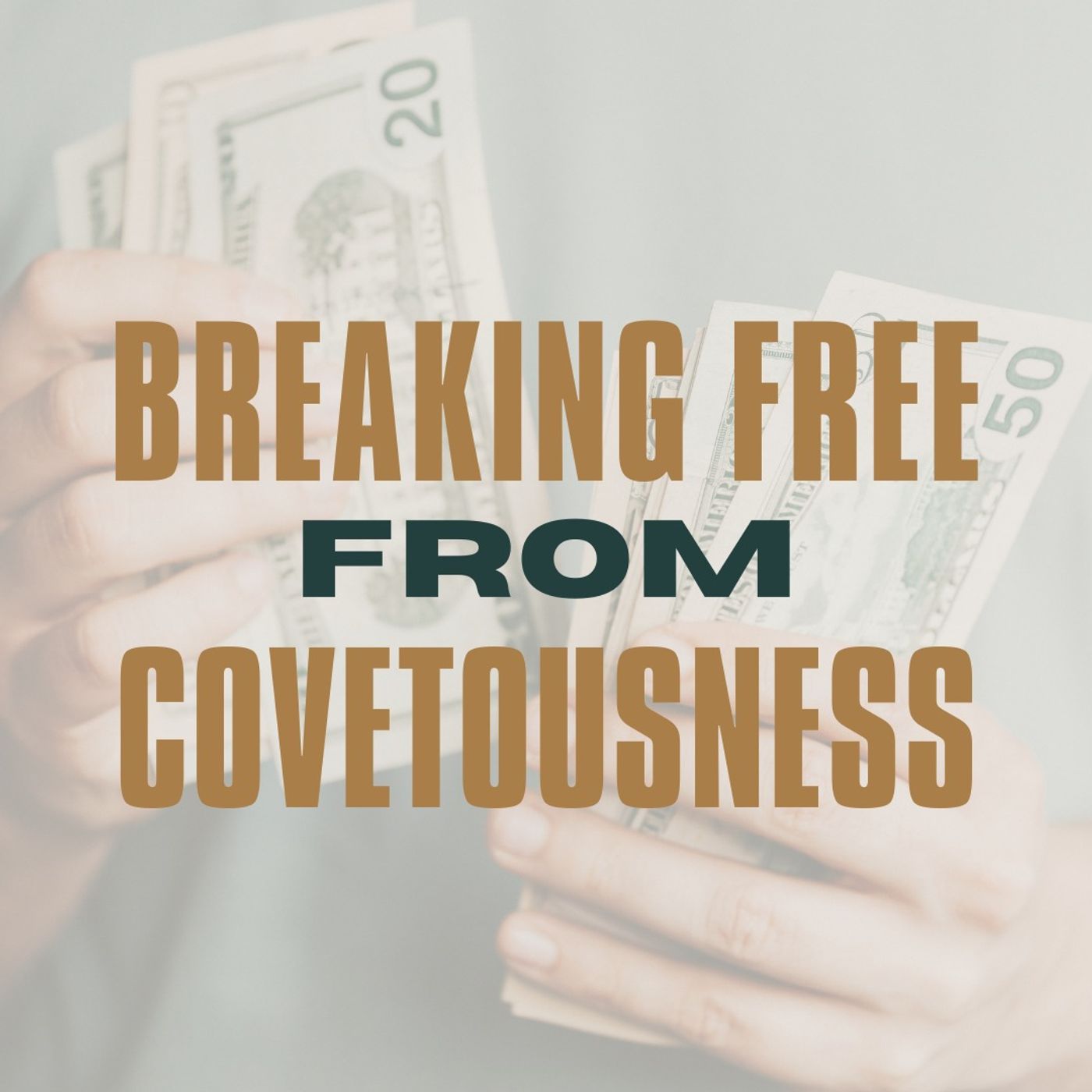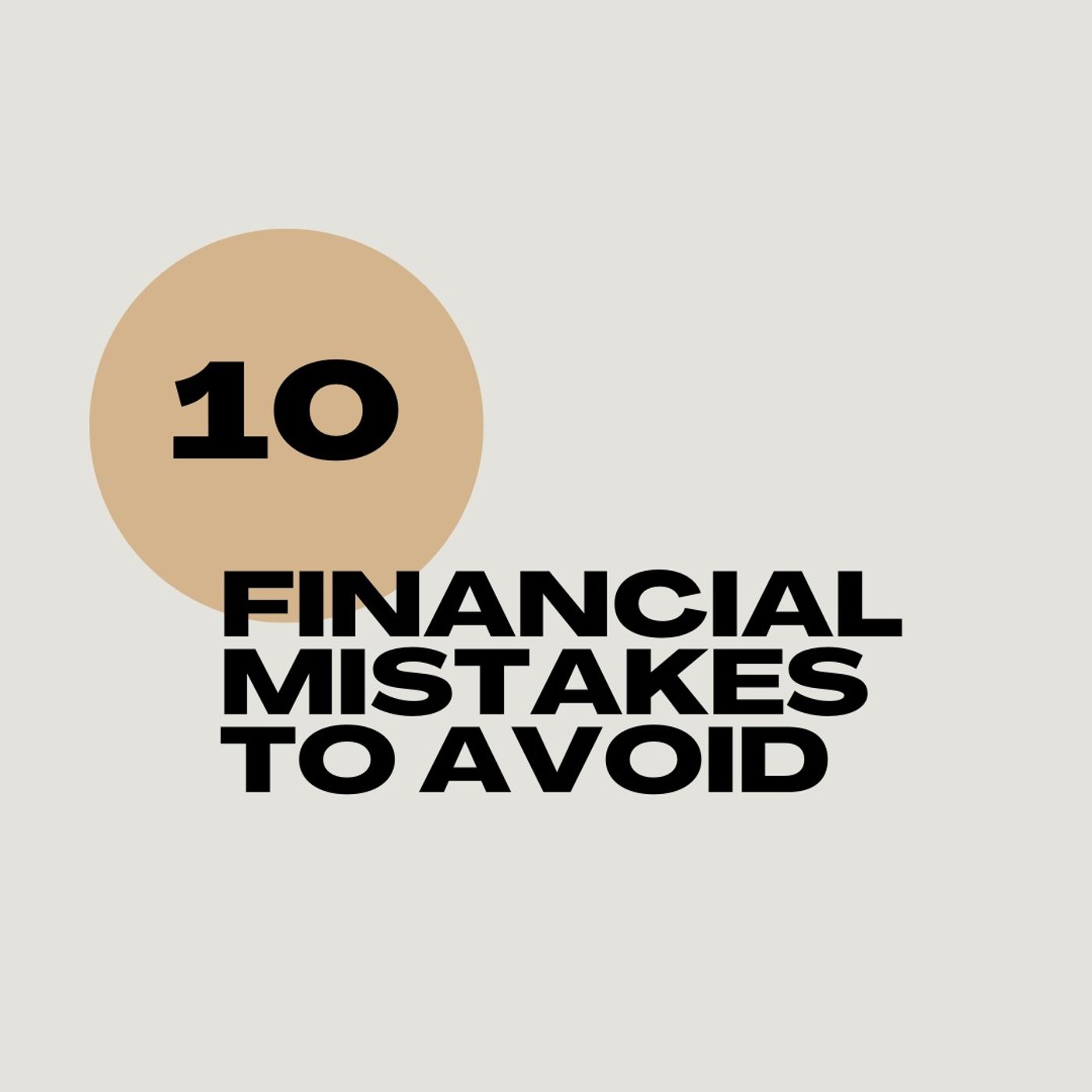Why Your Rest Matters to God with Dr. Tom Nelson
Description
We live in a world that never seems to slow down. Deadlines, family demands, and constant notifications all compete for our attention.
But what if God designed rest—not just work—as being essential to our flourishing? Today, we’re talking with Tom Nelson about the Sabbath, why it matters, and how it can transform the way we live and trust God.
Dr. Tom Nelson is the President of Made to Flourish and has served as the Senior Pastor of Christ Community Church, a multi-site congregation across Kansas City, for over 30 years. He is also the author of Why Your Work Matters: How God Uses Our Everyday Vocations to Transform Us, Our Neighbors, and the World.
God’s Design for Both Work and Rest
From the very first pages of Scripture, we see that God’s creation design includes both work and rest. These are not competing ideas but complementary rhythms woven into what it means to bear God’s image. Yet in our culture, it’s easy to emphasize one and neglect the other. We celebrate hard work—and rightly so—but often ignore the equally important gift of rest.
Genesis 2 begins not with human work, but with divine rest. “By the seventh day God had finished the work he had been doing; so on the seventh day he rested” (Genesis 2:2). God didn’t rest because He was weary. He rested to delight in His creation and to model for us a rhythm of life that mirrors His own.
Sabbath is a gift. It’s not an obstacle to productivity but an invitation to communion with our Creator. From the Garden of Eden to the Ten Commandments, from Jesus' ministry to the promise of the new creation, the thread of Sabbath runs through the entire story of Scripture.
When we honor that rhythm—six days of labor and one day of holy rest—we experience an echo of Eden and a foretaste of eternity, when we will work and rest in perfect harmony with God.
Rediscovering Sabbath as a Gift
God designed us for a relationship with Himself and with one another. Sabbath helps us recalibrate those relationships. It reorders our hearts around love, not accomplishment. The Triune God invites us to rest so that our hearts might be re-centered on intimacy with Him rather than on our own achievements.
That’s what Sabbath is really about: not simply stopping our work, but remembering who sustains it. It reminds us that the primary calling of our lives is not to do for God, but to be with God.
For many of us, we may see Sabbath as optional—something good in theory but impossible in practice. However, neglecting rest affects our spiritual formation, our relationships, and even our physical and emotional health.
Sabbath is not a duty; it’s a grace. It’s not legalism; it’s life. Sabbath is God’s way of teaching us to steward not just our resources, but our time. We often speak of stewarding our time, talent, and treasure, yet forget that time itself is one of God’s greatest gifts.
We may think of Sabbath as “rest from work,” but we should really view it as “work from rest.” Our week should flow out of the rest we receive—not the other way around.
Guarding Against the Idolatry of Work
Our work matters deeply to God. But like all good things, it can become disordered. When we place our identity, meaning, or security in what we accomplish, work becomes an idol. Sabbath protects us from that idolatry.
By resting, we declare that God—not our productivity—sustains the world. Sabbath breaks the cycle of self-reliance and teaches us to trust the One who never sleeps. It frees us to delight in beauty, to nurture relationships, and to experience renewal in body and soul.
Many people say, “That sounds wonderful, but you don’t know my schedule.” Between raising children, leading organizations, and building businesses, the idea of a day of rest can feel unrealistic.
But Sabbath is not a test of devotion—it’s an act of grace. Jesus said, “The Sabbath was made for man, not man for the Sabbath” (Mark 2:27 ). God gives us this rhythm for our good. So start small. Begin with an afternoon. Disconnect from technology. Step away from the endless noise and hurry. Give your soul permission to breathe.
As you do, you’ll find that rest becomes not a luxury, but a necessity. You’ll also discover that Sabbath rhythms bear witness to a watching world—an act of quiet evangelism declaring that our trust is in God’s provision, not our own effort.
A Practical Picture of Sabbath
For many, Sunday naturally serves as a Sabbath—a day centered on corporate worship and community. Begin the day in God’s Word. Gather with your church family to worship and remember the gospel. Then build the rest of the day around delight: time with loved ones, enjoying nature, sharing meals, or simply slowing down.
Sabbath isn’t about inactivity; it’s about being present—to God, to others, and to the world He made. It’s a day of delight, not productivity—a time to remember that we are human beings, not human doings.
Without Sabbath, those we love often receive only our leftovers—whatever energy remains after six days of striving. But when rest becomes part of our rhythm, our relationships deepen. We offer the people closest to us not exhaustion, but joy.
Sadly, when people face burnout or relational breakdown, Sabbath is almost always missing. Rest is essential to wholeness.
Ultimately, Sabbath points us to Jesus Himself—the Lord of the Sabbath. He invites us, “Come to me, all who labor and are heavy laden, and I will give you rest” (Matthew 11:28 ). That invitation is not just for a day each week—it’s for every day of our lives.
When we rest, we remember that the world is not upheld by our effort but by His grace. True rest is not found in the absence of work but in the presence of Christ.
On Today’s Program, Rob Answers Listener Questions:
- Our new community ministry is only about 25% funded right now, but we’d really like to launch it in a biblically sound way. As a leadership team, how should we move forward with that?
- A debt settlement counselor is offering to settle $36,000 of debt for $29,000, with monthly payments of $575 over 52 months. That adds up to just $29,000 total. Is this legitimate—or does it sound like a scam?
Resources Mentioned:
- Faithful Steward: FaithFi’s New Quarterly Magazine (Become a FaithFi Partner)
- Made to Flourish
- Why Your Work Matters: How God Uses Our Everyday Vocations to Transform Us, Our Neighbors, and the World by Dr. Tom Nelson
- Christian Credit Counselors
- Wisdom Over Wealth: 12 Lessons from Ecclesiastes on Money
- Look At The Sparrows: A 21-Day Devotional on Financial Fear and Anxiety
- Rich Toward God: A Study on the Parable of the Rich Fool
- Find a Certified Kingdom Advisor (CKA) or Certified Christian Financial Counselor (CertCFC)
- FaithFi App
Remember, you can call in to ask your questions every workday at (800) 525-7000. Faith & Finance is also available on Moody Radio Network and American Family Radio. You can also visit FaithFi.com to connect with our online community and partner with us as we help more people live as faithful stewards of God’s resources.
Hosted by Simplecast, an AdsWizz company. See pcm.adswizz.com for information about our collection and use of personal data for advertising.

